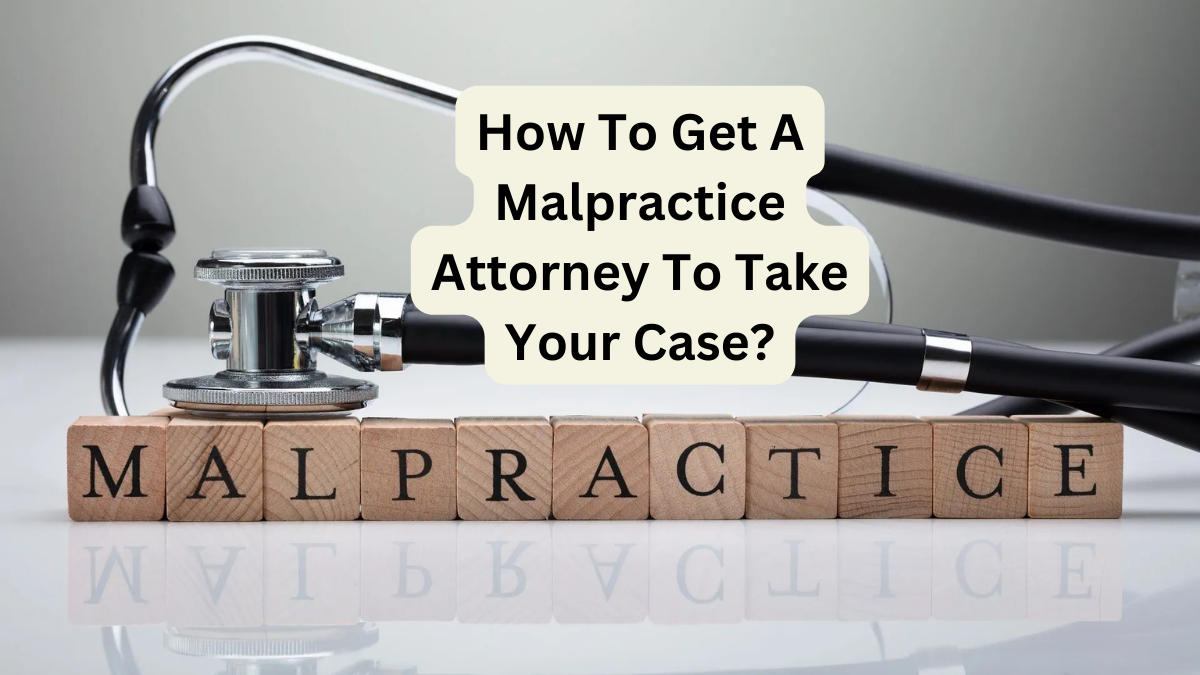How To Get A Malpractice Attorney To Take Your Case?
Are you feeling lost and overwhelmed after experiencing medical Malpractice Attorney? Don’t worry, you’re not alone. The journey towards justice may seem daunting, but fear not! We are here to guide you on how to get a malpractice attorney to take your case.
When to Seek a Malpractice Attorney?
If you believe that you or a loved one has been the victim of medical malpractice, you may be wondering when to seek a malpractice attorney. Ideally, you should contact an attorney as soon as possible after the incident occurred. This will give your attorney the opportunity to gather evidence and witness testimony while it is still fresh.
However, even if some time has passed since the incident, it is not too late to seek legal recourse. An experienced medical malpractice attorney will know how to investigate your case and build a strong argument for compensation.
If you are unsure whether or not you have a valid medical malpractice claim, you can always consult with a lawyer for a free case evaluation. During this consultation, the attorney will review your case and let you know if they believe you have grounds for a claim. If they do take on your case, they will work on a contingency basis, which means they only get paid if they win you compensation.
How to Find a Good Malpractice Attorney?
If you or a loved one has been the victim of medical malpractice, you may be wondering how to find a good malpractice attorney. While there are many ways to find an attorney, it is important to choose one who has experience handling cases like yours and who will fight for the compensation you deserve.
There are a few ways to find medical malpractice attorneys in your area. You can ask friends or family members if they know of any attorneys who have handled similar cases. You can also search online or in your local Yellow Pages for attorneys who specialize in medical malpractice.
Once you have a few potential attorneys in mind, it is important to schedule a consultation with each one. During your consultation, be sure to ask about the lawyer’s experience with cases like yours, their success rate, and their fee structure. After meeting with several different lawyers, you should be able to narrow down your choices and choose the best attorney for your case.
Preparing Your Case for a Malpractice Attorney
If you or a loved one has been the victim of medical malpractice, you may be wondering how to get a malpractice attorney to take your case. The first step is to gather all of the relevant information and evidence that you can. This may include medical records, bills, and any other documentation that will help to support your claim.
Once you have gathered all of the necessary information, you should schedule a consultation with a malpractice attorney. During the consultation, be sure to discuss all of the details of your case and give the attorney as much information as possible. After the consultation, if the attorney agrees to take on your case, he or she will begin working on building a strong case against the responsible parties.
Negotiating Fees with a Malpractice Attorney
The first step in negotiating fees with a malpractice attorney is to obtain a list of their current cases and clients. This will give you an idea of their caseload and how much they are currently charging. Once you have this information, you can begin to negotiate a fee that is fair for both parties. It is important to keep in mind that most attorneys will require a retainer fee upfront, so be sure to factor this into your negotiation.
How Long Does it Take for a Malpractice Lawsuit?
When it comes to filing a malpractice lawsuit, the answer to how long it takes is not always clear-cut. Every case is different and will have its own unique timeline. That being said, there are some general steps that must be taken in order for a malpractice lawsuit to be filed.
The first step is to consult with a medical malpractice attorney. This consultation will allow the attorney to review your case and determine if you have a valid claim. If the attorney believes you have a case, he or she will then file a complaint on your behalf with the appropriate court.
Once the complaint is filed, the defendant (the doctor or hospital against whom you are filing the lawsuit) will have an opportunity to respond. The defendant will then file an answer to the complaint, which will detail any defenses he or she has against your claim.
After the answer is filed, both sides will engage in what is called “discovery.” This is the process whereby each side gathers information from the other side and from third parties relevant to the case. This can include taking depositions (testimony given under oath outside of court), requesting documents, and sending interrogatories (questions that must be answered under oath).
Once discovery is complete, both sides will file motions with the court. These motions can be anything from requests for summary judgment (a request that the court rule in favor of one side based on the facts of the case
Questions to Ask a Potential Malpractice Attorney
If you think you may have a case for medical malpractice, it is important to consult with a qualified attorney. Here are some key questions to ask a potential malpractice attorney:
Have you handled any cases similar to mine?
While it is not essential that your attorney have direct experience with a case identical to yours, it can be helpful if they have handled similar cases before. This way, they will be more likely to understand the unique aspects of your case and know how best to proceed.
What do you think my chances of success are?
A good medical malpractice attorney will be honest with you about the merits of your case and the likelihood of achieving a favorable outcome. They should also be able to provide you with an estimate of the potential damages you could recover if your case is successful.
How much will it cost me to pursue my claim?
Medical malpractice litigation can be expensive, so it is important to understand the costs involved upfront. Your attorney should be able to provide you with an estimate of the costs associated with pursuing your claim, including any expert witness fees or other expenses that
Conclusion
If you believe that you have been wronged by a healthcare provider, then it is important to obtain an experienced malpractice attorney who can help you fight for your rights. By knowing what factors to consider when selecting a lawyer and how to find the right one for your case, you can be sure that your legal counsel will take strong action in order to ensure justice is served.
With the right lawyer on your side, chances are much greater that they will be able to get results faster than if you had tried this alone.






